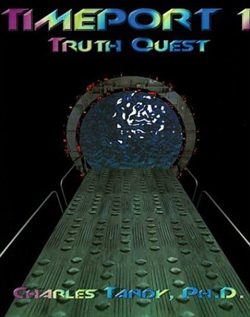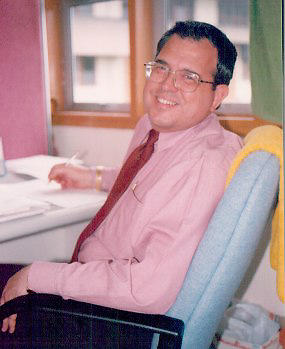Dr. Charles Tandy
The article “Wild-West” Versus “Space-Age” Systems Science: An Extraterrestrial Prisoner’s Dilemma? said
“Sometimes in life things go from good to better. But the so-called ‘Prisoner’s Dilemma’ helps explain why sometimes things go from bad to worse. Thus, understanding the Dilemma may help us, individually and collectively, engender a future that goes from good to better. The (Flood-Dresher-Tucker) ‘Prisoner’s Dilemma’ as used here does not limit its meaning to a narrow formulation. Rather, I am referring to the generalized Prisoner’s Dilemma. E.g. the ‘rational-choice’ or ‘game-theory’ Dilemma (as used here) may have any number of players, and the game may be single-shot or iterated.J. D. G. Evans explains the Prisoner’s Dilemma this way: ‘The prisoner’s dilemma describes a possible situation in which prisoners are offered various deals and prospects of punishment. The options and outcomes are so constructed that it is rational for each person, when deciding in isolation, to pursue a course which each finds [in terms of actual results] to be against his interest and therefore [in terms of actual results] irrational. … Such a scenario postulates a lack of enforced cooperation; and to avoid the undesirable outcome, the actors in the drama need to be forced into cooperation by a system of [enforced] rules’.”
Charles Tandy, Ph.D. was the author of this article and is Associate Professor of Humanities (Faculty of History and Philosophy), and a Senior Faculty Research Fellow in Bioethics (Research Center for Medical Humanities), at Fooyin University (Taiwan). He edited The Prospect of Immortality — Fifty Years Later.
Much of his work focuses on “big picture” issues related to the future of humanity. For example, how may our worldviews, technologies, and decisions affect future human existence? Such profoundly important issues are underexplored and underfunded. Too often, such studies are flawed by present-centric, ethno-centric, or discipline-centric thinking. In life, politics, and scholarship, our foresighted, global, and interdisciplinary perspectives are dangerously underdeveloped.
Charles authored Timeport 1: Truth Quest, coauthored Doctor Tandy’s First Guide to Life Extension and Transhumanity and Webster’s English-Pinyin-Chinese Dictionary, Level One for Beginners Using Traditional Characters: Easy-To-Read Edition for Everyday Practical Use, and edited Man Into Superman: The Startling Potential of Human Evolution — And How to Be Part of It, The Philosophy of Robert Ettinger, Death And Anti-death: Fifty Years After Einstein, One Hundred Fifty Years After Kierkegaard, Death and Anti-Death: One Hundred Years After N. F. Fedorov 1829–1903, Death And Anti-Death: Two Hundred Years After Kant, Fifty Years After Turing, and The Prospect of Immortality.
His areas of specialization are: Bioethics (medical/biomedical ethics), Comparative philosophy, Epistemology, Ethics, Interdisciplinary philosophic studies, Medical humanities, Metaphysics, Philosophy of culture, Philosophy of education, Philosophy of history, Philosophy of mind, Philosophy of science, Philosophy of social science, Philosophy of technology, and Practical ethics.

He is listed in Community Leaders and Noteworthy Americans, Dictionary of International Biography, Directory of American Scholars, International Who’s Who in Community Service, International Who’s Who of Intellectuals, and Who’s Who in the World. He is a life member of American Historical Association and American Philosophical Association, and a member of Philosophy of Education Society and Society for Asian and Comparative Studies.
Charles earned a B.A. in Philosophy from the University of Louisville, Kentucky Southern College in 1969, a M.L.A., Liberal Arts, McDaniel College in 1985, and a Ph.D. in Philosophy of Education, University of Missouri at Columbia in 1993.
Read his paper You Have A Duty To Migrate Off-Planet… (From Blue Origin To Green Destiny: Gerard K. O’Neill And Planetary Crises).
Visit his site SEGITs: Self-sufficient Extra-terrestrial Green-habitat Intentional Transparent [self-replicating] communities. Read his LinkedIn profile.
